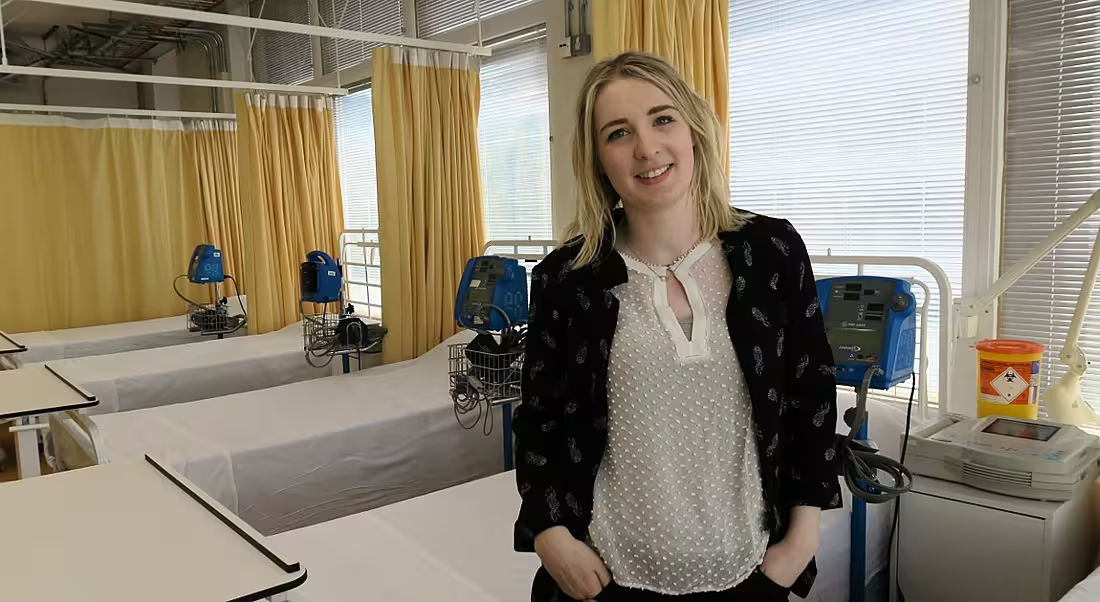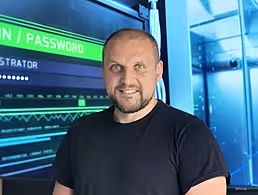At some point in our lives, we’ve all had to take drugs – antibiotics, steroids, pain meds – but do you know how those drugs get from conception to your pharmacy shelf?
Ciara Gorey, clinical operations manager at Richmond Pharmacology, is part of the team shepherding new medicines on their way from trial to market. She gave us an insight into how that process works.
What is your role within this company?
I am a clinical operations manager, which ultimately means that I plan, organise and manage clinical trials from beginning to end. Richmond Pharmacology specialises in phase-one clinical trials, testing new and upcoming medicines on healthy volunteers and patients.
My job involves meticulously planning every aspect of the trial, from preparing the equipment to be used, to planning the food the volunteers are going to eat. This also encompasses monitoring the study while it is ongoing, and dealing with any unforeseen issues that may arise. I also have to make sure, even after the trial has been completed, that all the resulting data is accurate and complete.
If there is such a thing, can you describe a typical day in the job?
There definitely isn’t a typical day in my job! Every day is a new challenge, and there are new problems that need to be addressed, but that’s what makes it so exciting.
But, in general, I start my day dealing with any pending issues. These issues are usually things like trying to source a missing blood sample, or a volunteer missing their appointment, or even needing to source supplies for an upcoming trial. Most of the time, these issues can be solved by just looking into them a little further and liaising with the relevant departments, but other times, these issues may take days or even weeks to resolve.
On most days, we also have monitors who come and visit the site. These are representatives from the client who come to look at the data we’ve collected and ensure that we’ve compiled it according to the client’s specification and according to the regulatory guidelines. My job is to make sure they have all the materials they need, and provide resolution for any queries they have about the data or certain safety features.
Once these obligations are met, I usually start working on some of the documents that need to be created for an upcoming trial, such as ethics documents, laboratory manuals, supplies lists and the operations manual, which details exactly how all aspects of the trial should be handled. For these, we use just small pieces of information from the client and turn it into a cohesive plan.
All in all, there’s never a quiet moment of the day. The phone is always ringing with questions and problems that need a quick resolution.
What types of project do you work on?
Richmond Pharmacology conducts drug trials for a number of different diseases, such as Alzheimer’s disease, psoriasis, Crohn’s disease, endometriosis, and more.
With so many trials, each clinical operations manager is usually working on multiple studies at any one time, and we like to mix it up so we’re not working on any similar studies at the same time. At any one time, we usually have one study that’s just starting, one ongoing, and one finishing.
What skills do you use on a daily basis?
It takes a wide variety of skills to get through the day in my role. Computer skills are a must as, besides Word and Excel, we use a lot of special programs to monitor the trials. Being a quick learner of these programs really helps.
Thinking on your feet and being able to adapt can also really help in this role as, oftentimes, the client or volunteers can throw a real curveball at you that you didn’t anticipate. Being able to alter your ideas and thinking around the problem is a fundamental part of this role.
My teamwork skills are also utilised daily in this role. With so many aspects of a trial to plan and manage, admitting that you can’t do it all alone is fundamental. Being able to pull ideas and experience from the people around you, and from other departments, helps to ensure that the trial is run smoothly and safely.
What is the hardest part of your working day?
The hardest part of my day is trying to manage my time. With so many things on my plate at any one time, it’s impossible to do everything, and prioritising what needs to be done first can be a challenge.
In addition, trying to get all the different departments to work together as a cohesive unit can be a challenge. It takes a lot of time and emails just to make sure all the departments have the information they need to do their job perfectly.
Do you have any productivity tips that help you through the working day?
Lists, lists and more lists!
Every morning when I come in, the first thing I do is make a list of what needs to be done that day, the next day, the next week etc, and even things just to keep in the back of my mind for the future. This is the only way I can make sure I don’t forget anything.
I think it also helps to set myself a time limit for everything. Even if a document doesn’t have a tight deadline, I set myself a tight limit (say, two hours) to complete it. If I don’t, I’ll just end up procrastinating and it will never get done.
When you first started this job, what were you most surprised to learn was important in the role?
I always knew communication was important in any role, but I don’t think I really appreciated how important it was until I started this job! It’s vitally important in my role that you communicate things clearly and confidently, as even the smallest uncertainty or misinterpretation can greatly affect either the results you get, or the safety of the volunteers. There is certainly no room for error.
How has this role changed as this sector has grown and evolved?
Clinical trials have become much more highly regulated over the last number of years and, as a result, my role has expanded greatly. Where, in the past, my role really only focused on issues such as supplies and equipment, now we focus much more on the safety aspect of the trial, making sure that proper safety features are implemented and ensuring that the volunteers are not facing any risks from participating in the trial.
What do you enjoy most about the job?
At the end of the day, what I enjoy most is knowing that, ultimately, what we do will benefit people in the future. There’s no better feeling than seeing a drug that you worked with go on the market and be successful in treating a number of different diseases.
Ultimately, what we do is vital for scientific research and I’m proud to play a small part in it.




